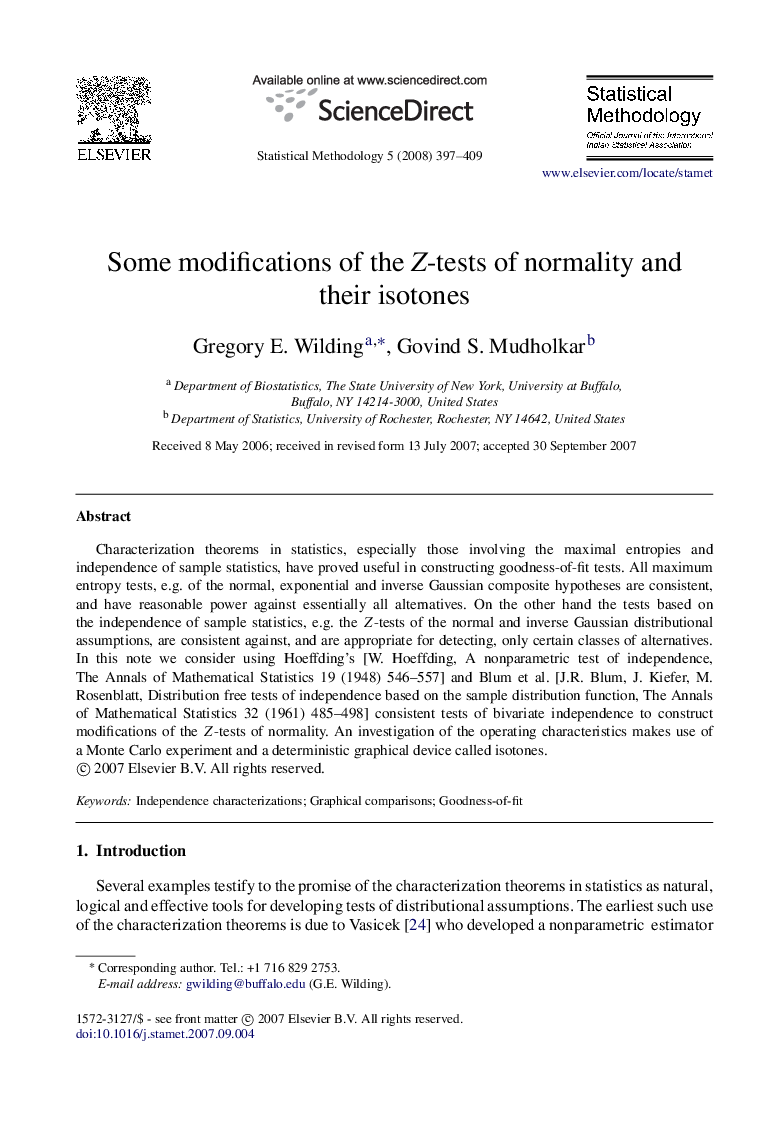| Article ID | Journal | Published Year | Pages | File Type |
|---|---|---|---|---|
| 1152181 | Statistical Methodology | 2008 | 13 Pages |
Abstract
Characterization theorems in statistics, especially those involving the maximal entropies and independence of sample statistics, have proved useful in constructing goodness-of-fit tests. All maximum entropy tests, e.g. of the normal, exponential and inverse Gaussian composite hypotheses are consistent, and have reasonable power against essentially all alternatives. On the other hand the tests based on the independence of sample statistics, e.g. the Z-tests of the normal and inverse Gaussian distributional assumptions, are consistent against, and are appropriate for detecting, only certain classes of alternatives. In this note we consider using Hoeffding's [W. Hoeffding, A nonparametric test of independence, The Annals of Mathematical Statistics 19 (1948) 546-557] and Blum et al. [J.R. Blum, J. Kiefer, M. Rosenblatt, Distribution free tests of independence based on the sample distribution function, The Annals of Mathematical Statistics 32 (1961) 485-498] consistent tests of bivariate independence to construct modifications of the Z-tests of normality. An investigation of the operating characteristics makes use of a Monte Carlo experiment and a deterministic graphical device called isotones.
Keywords
Related Topics
Physical Sciences and Engineering
Mathematics
Statistics and Probability
Authors
Gregory E. Wilding, Govind S. Mudholkar,
